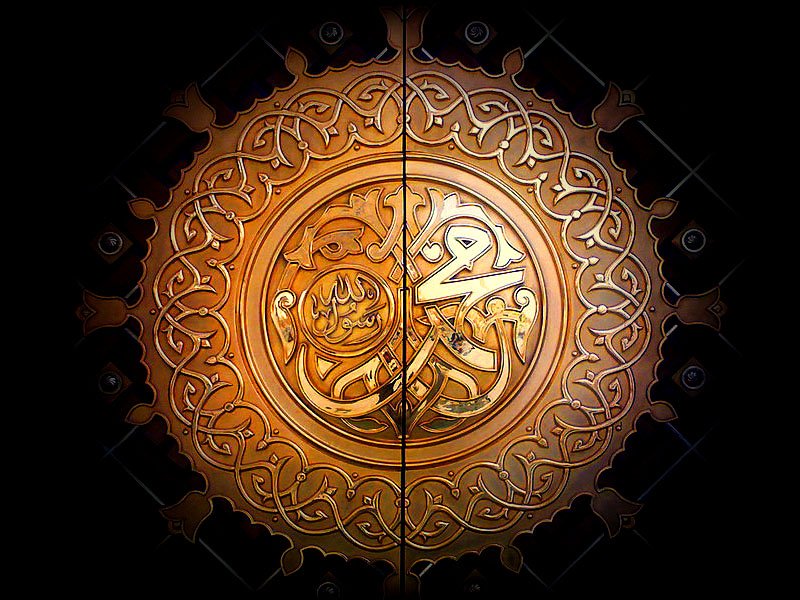
The Makkah period in the life of Prophet Muhammad (PBUH) is a time of great significance for Muslims around the world. It is during this period that the foundations of Islam were laid, and the Prophet Muhammad (PBUH) received the revelations of the Quran from Allah. The Makkah period spans approximately 13 years, beginning with the first revelation in 610 CE and ending with the migration to Madinah in 622 CE.
During this time, the Prophet Muhammad (PBUH) faced numerous challenges and hardships as he spread the message of Islam to the people of Makkah. The people of Makkah were deeply rooted in their polytheistic beliefs and were resistant to the teachings of monotheism. The Prophet Muhammad (PBUH) faced opposition, persecution, and even physical harm from the Quraysh tribe, who were the dominant tribe in Makkah at that time.
Despite these challenges, the Prophet Muhammad (PBUH) remained steadfast in his mission and continued to preach the message of Islam. He emphasized the importance of monotheism and the worship of Allah alone, rejecting the idols and false gods that were worshipped by the people of Makkah. He called upon the people to abandon their sinful ways and embrace a life of piety and righteousness.
The revelations of the Quran during the Makkah period addressed a wide range of topics, including the oneness of Allah, the importance of prayer, the significance of charity, and the need for social justice. The Quran also provided guidance on various aspects of life, including family relationships, business transactions, and ethical conduct. It served as a source of inspiration and guidance for the early Muslims and continues to be a source of guidance for Muslims today.
The Makkah period also saw the conversion of many individuals to Islam, despite the opposition they faced from their families and the wider society. Notable among these early converts were the Prophet Muhammad’s (PBUH) close companions, such as Abu Bakr, Umar, and Ali, who played crucial roles in the spread and establishment of Islam.
In summary, the Makkah period in the life of Prophet Muhammad (PBUH) is a crucial phase in Islamic history. It was during this period that the foundations of Islam were established, and the teachings of the Quran were revealed. The Prophet Muhammad (PBUH) faced numerous challenges and hardships, but his unwavering commitment to the message of Islam laid the groundwork for the subsequent spread and establishment of the religion. The Makkah period serves as a reminder of the perseverance and dedication required in the face of adversity and the importance of staying true to one’s beliefs.
With the weight of the divine message resting upon his shoulders, Muhammad (PBUH) embarked on a journey that would test his faith, resilience, and determination. The call to prophethood was not an easy path to tread, as it required him to confront the deeply ingrained beliefs and practices of the people of Makkah.
As the news of his prophethood spread, Muhammad (PBUH) faced opposition and ridicule from the Quraysh, the powerful tribe that controlled Makkah. They viewed his message as a threat to their social, economic, and religious status quo. Yet, despite the challenges and hardships, Muhammad (PBUH) remained steadfast in his commitment to deliver the message of monotheism and righteousness.
The early converts to Islam, including his close companions such as Abu Bakr (RA), Umar (RA), and Uthman (RA), stood by his side, providing unwavering support and encouragement. Together, they formed a tight-knit community that would later become the foundation of the Islamic faith.
The call to prophethood also brought forth a series of revelations, which were compiled into what is now known as the Quran. These divine revelations served as a guide for Muhammad (PBUH) and his followers, providing them with moral and ethical principles to live by. The Quran became the cornerstone of the Islamic faith, offering guidance on matters of worship, social justice, and personal conduct.
As the message of Islam began to spread, Muhammad (PBUH) faced not only opposition but also moments of triumph and success. His wisdom, compassion, and integrity won the hearts of many, and the number of his followers grew steadily. Despite the challenges, Muhammad (PBUH) remained focused on his mission, tirelessly working to establish a just and equitable society based on the principles of Islam.
The call to prophethood was not just a personal journey for Muhammad (PBUH), but a transformative period in the history of humanity. Through his teachings and actions, he laid the foundation for a new way of life, one that emphasized the unity of mankind, the importance of social justice, and the worship of the One True God.
In conclusion, the call to prophethood marked the beginning of a remarkable journey for Muhammad (PBUH). It was a period of immense challenges and triumphs, where he faced opposition and adversity with unwavering faith and determination. The call to prophethood was not just a call to deliver a message, but a call to transform society and establish a legacy that would continue to inspire generations to come.
Prophet Muhammad (PBUH) understood the significance of addressing the prevailing social issues of his time. He advocated for the rights of women, who were often treated as inferior and oppressed in Arabian society. The Quranic verses revealed during this period emphasized the importance of respecting women, granting them rights to inheritance, and protecting them from abuse.
In addition to promoting gender equality, the message of Islam also emphasized the importance of racial harmony and the eradication of racial discrimination. The society in Makkah was divided along tribal lines, with deep-seated animosity between different tribes. Prophet Muhammad (PBUH) sought to unite the people under the banner of Islam, emphasizing that the only distinction among individuals should be their piety and good deeds.
The message of Islam also called for the establishment of a just and equitable society, where the rich and powerful would not exploit the weak and vulnerable. The Quranic revelations condemned the prevalent practices of usury and exploitation, urging the believers to engage in fair trade and show kindness and generosity towards others.
Furthermore, the message of Islam emphasized the importance of knowledge and education. The Quranic verses encouraged the pursuit of knowledge and understanding, as well as the seeking of wisdom from both religious and worldly sources. Prophet Muhammad (PBUH) himself set an example of lifelong learning, constantly seeking knowledge and encouraging his companions to do the same.
In summary, the message of Islam during the Makkah period encompassed a wide range of teachings and values. It sought to establish a society based on monotheism, social justice, compassion, and moral values. Prophet Muhammad (PBUH) faced immense challenges and opposition, but his unwavering commitment to spreading the message of Islam laid the foundation for the transformation of Arabian society and the eventual spread of Islam throughout the world.
Persecution and Migration
The early Muslims faced severe persecution in Makkah due to their rejection of idol worship and their allegiance to Islam. The opposition from the Quraysh tribe, who held a significant influence in Makkah, intensified over time, leading to physical and emotional abuse of the Muslims.
Despite the hardships, the Muslims remained steadfast in their faith. Some were even tortured and martyred for their beliefs. In the face of escalating persecution, Prophet Muhammad (PBUH) advised a group of Muslims to migrate to Abyssinia (modern-day Ethiopia), seeking refuge under the just Christian ruler, Negus Ashama ibn Abjar.
Later, a second migration took place when a group of Muslims sought sanctuary in the city of Yathrib, which would later be known as Madinah. This migration, known as the Hijrah, marked a significant turning point in the history of Islam.
The migration to Abyssinia provided the Muslims with a temporary respite from the relentless persecution they faced in Makkah. The Christian ruler, Negus Ashama ibn Abjar, welcomed the Muslim migrants and protected them from the Quraysh’s attempts to extradite them back to Makkah. The Muslims found solace in Abyssinia, where they were able to practice their faith freely and without fear of persecution.
However, the situation in Makkah continued to deteriorate for the remaining Muslims. The Quraysh intensified their efforts to suppress Islam, imposing economic and social boycotts on the Muslim community. The Muslims faced economic hardships as they were denied access to trade and commerce, leading to a decline in their financial stability.
Amidst these challenging circumstances, the Muslims received news of a welcoming and supportive community in Yathrib. The city of Yathrib, located several hundred kilometers north of Makkah, was inhabited by various tribes, including Jewish and Arab communities. The Muslims saw this as an opportunity to escape persecution and establish a new home where they could practice their faith freely.
The migration to Yathrib, known as the Hijrah, was a critical event in the history of Islam. It not only provided the Muslims with a safe haven but also paved the way for the establishment of the first Islamic state in Madinah. The Muslims in Yathrib, now known as the Ansar (helpers), welcomed the Prophet Muhammad (PBUH) and his followers with open arms, offering them protection and support.
The Hijrah marked a turning point in the history of Islam, as it shifted the center of Islamic activities from Makkah to Madinah. The Muslims in Madinah were able to establish a society based on justice, equality, and the principles of Islam. The migration to Madinah also allowed the Muslims to consolidate their strength and form alliances with other tribes, which would prove crucial in the subsequent battles against the Quraysh.
In conclusion, the early Muslims faced severe persecution in Makkah, leading to their migration to Abyssinia and later to Yathrib. These migrations provided the Muslims with opportunities to practice their faith freely and establish a new community based on Islamic principles. The Hijrah to Madinah marked a significant turning point in the history of Islam, as it laid the foundation for the establishment of the first Islamic state and the subsequent spread of Islam throughout the Arabian Peninsula.
4. Unity and Brotherhood: During the Makkah period, the Prophet Muhammad (PBUH) emphasized the importance of unity and brotherhood among the Muslims. Despite belonging to different tribes and backgrounds, the early Muslims came together as a cohesive community, supporting and caring for one another. This serves as a reminder for Muslims today to prioritize unity and brotherhood, setting aside any divisions or differences that may exist.
5. Social Justice: The Makkah period also highlights the Prophet’s commitment to social justice. He advocated for the rights of the poor, the oppressed, and the marginalized, challenging the unjust social norms of the time. This emphasis on social justice serves as a timeless lesson for Muslims, reminding them of their duty to stand up against injustice and work towards a more equitable society.
6. The Power of Prayer: Throughout the Makkah period, the Prophet Muhammad (PBUH) relied on prayer as a source of strength and guidance. He sought solace and support from Allah during times of difficulty and uncertainty. This teaches us the importance of turning to prayer in times of hardship, trusting in the power of supplication to bring comfort and guidance.
7. Steadfastness in the Face of Opposition: The Makkah period was marked by intense opposition and persecution against the Prophet and his followers. However, they remained steadfast in their faith and commitment to Islam. This teaches us the importance of standing firm in our beliefs, even when faced with adversity or opposition. It serves as a reminder to Muslims to remain resilient and unwavering in their faith, regardless of the challenges they may encounter.
8. The Importance of Education and Knowledge: The Makkah period also emphasizes the significance of education and knowledge. The Prophet Muhammad (PBUH) encouraged his followers to seek knowledge and to be intellectually curious. This emphasis on education serves as a reminder for Muslims to prioritize learning and to acquire knowledge in various fields, as a means of personal growth and development.
In conclusion, the Makkah period of Prophet Muhammad’s (PBUH) life offers numerous valuable lessons for Muslims and non-Muslims alike. These lessons include the importance of patience and perseverance, tolerance and compassion, faith in God’s plan, unity and brotherhood, social justice, the power of prayer, steadfastness in the face of opposition, and the importance of education and knowledge. By reflecting on and implementing these lessons, individuals can strive to lead a more meaningful and purposeful life, in accordance with the teachings of Islam.
Klik Disini untuk follow kami di linkedIn
Klik Disini untuk belanja di online shop kami



